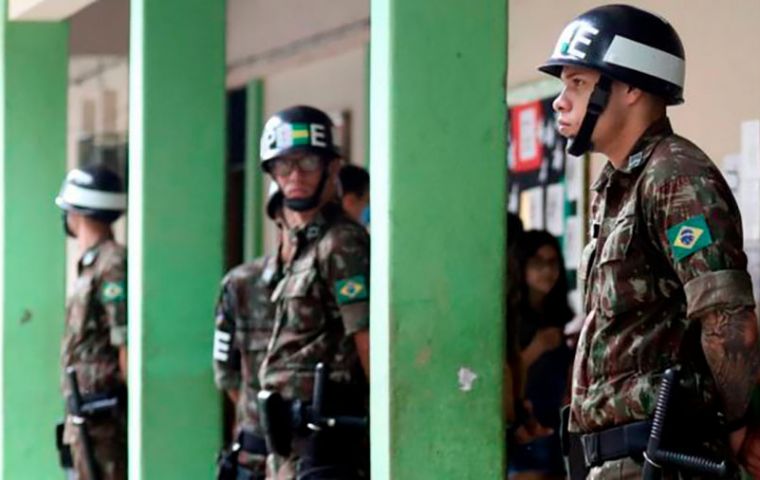MercoPress. South Atlantic News Agency
Brazilian military experts find no irregularities in Lula's win
 The experts, however, made a list of suggestions for the TSE to follow in future elections
The experts, however, made a list of suggestions for the TSE to follow in future elections Brazil's Defense Ministry Wednesday submitted its report to the Superior Electoral Court (TSE) regarding the armed forces' involvement in the presidential elections last month: No irregularities were detected.
“The work was restricted to the inspection of the electronic voting system, not including other activities, such as, for example, the manifestation of eventual indications of electoral crimes,” the document stated after President Jair Bolsonaro had questioned the electronic ballot box system in use since 1996.
Bolsonaro's followers had been campaigning before military barracks over the past few days hoping fraud would be proved in Luiz Inácio Lula Da Silva's Oct. 30 victory, thus allowing an uprising “in the name of the Constitution” to keep Bolsonaro, a former Army captain, in charge of the country next year.
However, the Defense Ministry did recommend the TSE up its security measures regarding access to data during the compilation of the source code and the consequent generation of the programs (the binary codes), which can pose a risk to the security of the electoral process.
The report also pointed out that the military experts were unable to confirm whether the electronic voting system was free from a possible malicious code that could alter its operation and suggested the TSE followed the suggestions of military technicians to carry out a technical investigation to have a better knowledge of the compilation of the source code and its possible effects and to promote a thorough analysis of the codes that were actually executed in the electronic ballot boxes.
Previously, the Court of Auditors of the Union (TCU) and the Brazilian Bar Association (OAB) had already stated that they did not find any irregularities in the elections or any interference in the electronic ballot boxes, while the Organization of American States (OAS) stated that there were no irregularities in 100% of the tests and audits it performed.
The Armed Forces were a part of the transparency committee created by the TSE to oversee the elections, after which several reports were submitted.
Last week, the international mission of the Community of Portuguese Speaking Countries (CPLP) concluded that the Brazilian elections had taken place “in a safe and reliable way,” according to Agencia Brasil. The CPLP insisted that the electronic ballot box was “reliable and credible.” The CPLP also noted there were no complaints likely to cast doubt on the transparency of the voting process.




Top Comments
Disclaimer & comment rulesCommenting for this story is now closed.
If you have a Facebook account, become a fan and comment on our Facebook Page!